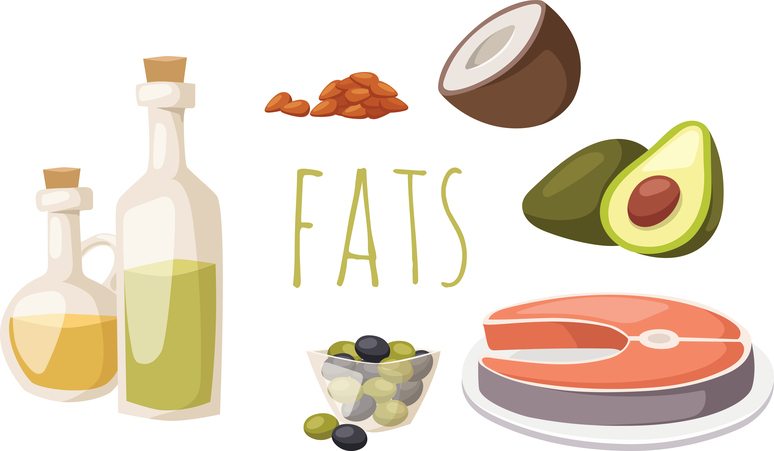A damning report issued by the National Obesity Forum and Public Health Collaboration has called for a “major overhaul” of current dietary guidelines.
Listing low-fat diets and products that claim to lower cholesterol as having “disastrous health consequences”, the report urged consumers to return to eating whole foods, untouched by preservatives, processing and dangerous additives.
Beginning in the 1970’s and growing to fruition in the 80’s was the ‘low fat’ ‘no fat’ craze.
Dr. Frank B. Hu of the Harvard T.H. Chan School of Public Health called the misrepresentation of collected data “an oversimplification of dietary recommendations that created a fat phobia”.
This “fat phobia” spurred the emergence of a variety of “low fat” and “fat free”products that soon replaced regular products on the shelves.
The misleading marketing saw consumers rushing to the stands to replace full fat yoghurt, milk, crackers and other foods with ‘low fat’ alternatives. The catch? These alternatives were often much higher in sugar, replacing the fat content with increased levels of carbohydrates.
The heightened consumption of refined starches and sugars that followed this ‘rebranding’ has now been associated with the current epidemic of obesity and Type 2 diabetes.
“The mistake made in earlier dietary guidelines was an emphasis on low-fat without emphasising the quality of carbohydrates, creating the impression that all fats are bad and all carbs are good,” Hu, a professor of nutrition and epidemiology, said. “It’s really important to distinguish between healthy fats and bad fats, healthy carbs and bad carbs.”

Causing a huge backlash among the scientific community, the report also touched on heart disease, arguing that saturated fat does not heighten your risk, instead, the report argues that full-fat dairy products, including milk, yoghurt and cheese, can actively protect the heart.
“The most natural and nutritious foods available – meat, fish, eggs, dairy products, nuts, seeds, olive, avocados – all contain saturated fat. The continued demonisation of omnipresent natural fat drives people away from highly nourishing, wholesome and health promoting foods.”
While academics, like Professor Iain Broom from Robert Gordon University supported the report, calling the decades of ill-advised dietary advice “fatally flawed”, others have condemned the findings, labelling it “highly contentious”.
Dr Michael Mosley, author of “The Blood Sugar Diet” said that he was “living proof” this way of eating worked.
“This became particularly relevant to me four years ago when I discovered that, like my father, I had become a type 2 diabetic while still in my early fifties. Rather than start on medication I invented a diet (the 5:2 diet), lost weight (10 kgs) and reversed my diabetes. Both my weight and my blood sugars have remained normal ever since.
“The reason, I believe, why this is a healthier diet than a low-fat one is because it keeps my insulin levels down. When you eat a lot of sugary foods or easily digestible carbs (like rice or pasta) your body has to produce lots of insulin to suppress the rapid increase in your blood sugar levels. Eating fat or protein doesn’t have anything like the same effect on your blood sugars, and therefore your insulin levels. Because insulin is also a fat promoting hormone, advising people to eat lots of starchy foods (which is still standard dietary advice) is likely to make them fatter, not slimmer.”
Professor David Haslam, chairman of the National Obesity Forum, agreed with Mosley’ statement, sharing his own experience: “As a clinician, treating patients all day every day, I quickly realised that guidelines suggesting high carbohydrate, low-fat diets were the universal panacea, were deeply flawed.
“Current efforts have failed – the proof being that obesity levels are higher than they have ever been, and show no chance of reducing despite the best efforts of government and scientists.”
Other health experts have questioned the report’s conclusions, stating that they were concerned about the selective citing of evidence.
“This report is full of ideas and opinion however it does not offer the robust and comprehensive review of evidence,” said Mike Knapton, associate medical director at the British Heart Foundation. “This country’s obesity epidemic is not caused by poor dietary guidelines; it is that we are not meeting them.” Furthermore, he warned that “focusing on single foods, nutrients or risk factors is short sighted and will perpetuate confusion and fear amongst the public about what they should and shouldn’t eat.”
But experts like Dr Mosley suggest we need an overhaul to the current way of thinking and it needs to happen quickly.
“Unfortunately, partly because of the long shadow of Atkins (which required far more radical dietary changes) this sort of approach is still frowned on. In fact, if you go on the NHS Eatwell website, it still recommends basing meals around starchy foods and choosing low-fat dairy options.
“I’m not suggesting we should all start to glug down cream or gorge on stilton. What I do think is that the NHS and other official bodies need to urgently rethink their standard advice.”
The Public Health Collaboration is a non-profit health campaign group made up of public health experts and the National Obestity Forum is a charity which campaigns to raise public awareness of obesity and promotes lifestyle changes to reduce its impact on society.







